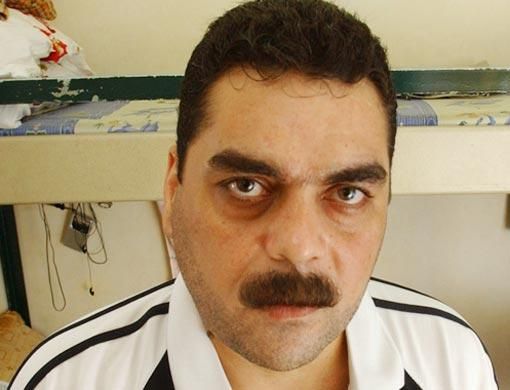Dubai: Israel is about to give up its last and most prized bargaining chip with Hezbollah.
Samir Kantar, a symbol of resistance against Israel, will be handed over to Hezbollah on Wednesday in exchange of corpses of Israeli soldiers and potentially hundreds of Arab fighters.
When Hezbollah kidnapped two Israeli soldiers in a cross-border raid on July 12, 2006, Secretary General Saeed Hassan Nasrallah termed the operation "Truthful Promise" with its objective of capturing Israeli soldiers to trade for Lebanese prisoners in Israel.
The Jewish state launched a 33-day war in retaliation.
Israel's cabinet gave the final go-ahead on Monday for a prisoner swap with Hezbollah, despite saying the Lebanese Shiite movement had not fully kept its side of the bargain.
"The government has ratified the deal," Deputy Prime Minister Eli Yishai told reporters after the cabinet meeting, which adopted the measure by a vote of 22-3.
One of the most reviled figures in the Jewish state, Kantar's release is expected to hurt some egos in the Israeli establishment. That, according to Samir's brother Bassam Kantar, is not going unnoticed in Lebanon.
"We expect anything from the enemy and are taking all the necessary precautions," Bassam told Gulf News in an interview from Lebanon, adding that it would be no surprise if Israel targeted him again or installed tracking devices in his body.
Heroes
"Samir and all of those who have resisted Israel always face the possibility of assassination," he said.
"But I think Israel will think well before trying to assassinate him because it knows that the blood of our martyrs and leaders is not shed in vain, and the martyrdom of [Hezbollah military commander] Emad Mughnieh [will be] the best example of this."
Mughnieh was killed in a car bomb in Damascus earlier this year for which Hezbollah blamed Israel and promised to avenge the death.
Serving multiple life sentences in an Israeli prison, Samir Kantar is accused by Israel of being responsible for the killing of an Israeli policeman, a 28-year-old man, and his daughter in 1979.
Kantar, who was 17 during the attacks, is said to have entered Nahariya, Israel, by boat from Tyre, Lebanon, with three fighters as part of Operation Nasser by the Palestinian Liberation Front.
The group first killed a police officer it came across, then split, following which Kantar entered the home of a 28-year-old Israeli, and killed him. According to Israeli accounts, he also killed the young daughter.
Samir Kantar has vehemently denied the claim about the girl.
"Samir has reiterated time and again that the girl died in the exchange of gunfire between him and Israeli police. But the Israelis came up with false claims about the events because it is convenient in their efforts to undermine the Palestinian resistance," Bassam said.
"But they've paid the price for [undermining the resistance] since anyone considered by the Zionists to be a terrorist is a hero in Palestine and Lebanon."
Bassam said that the timing of the exchange is a major factor in the agreement to release Israel's most prized Lebanese prisoner.
The political difficulties being faced by Israeli Prime Minister Ehud Olmert meant he needed a political victory, one that cannot be achieved without a victory for Hezbollah.
"Olmert is facing allegations of corruption and needs to steer public opinion away from his personal issues. This is evident in the Israeli government's efforts to release the prisoners before July 17, which is the date of Olmert's court hearing," said Bassam.
He said that the pressure from the families of Israeli soldiers captured by Hezbollah had been key to the success of the prisoner swap agreement "and makes a majority of the Israeli public in favour of meeting all of Hezbollah's demands even though it appeared that the two captured soldiers were no longer alive".
Bassam said there was a need in Israel to finally close the Samir Kantar chapter after 30 years to prevent Hezbollah from kidnapping more Israeli soldiers to secure his release.
He, however, said that he respected Israel's commitment to its captured soldiers, "which does not exist in the Arab world".
"But Hassan Nasrallah has [reiterated] that 'We are not a nation that forgets its prisoners' and this will be marked in history," said Bassam.
Upon Samir's arrival, his brother said, a parade is expected to go from his expected point of retrieval in Naqourah all the way to Beirut, where his arrival home after 30 years will be celebrated.













